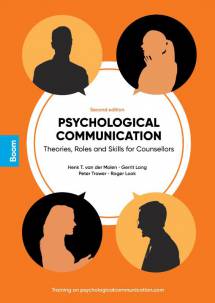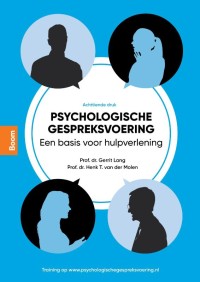Psychological Communication (2nd edition)
Theories, Roles and Skills for Counsellors
This book combines relevant theoretical insights and concrete communication skills necessary for effective counselling and coaching. The authors first explore the helper’s basic attitude. Secondly, they discuss views from client-centred, cognitive behavioural and social learning theories that are important for good helping.
Bridging theory and practice they describe the helper in four roles: confidant, communicative detective, teacher, and coach. The helper uses these roles within a three stage helping model: problem clarification, gaining new insights and treatment of the problem. As a guide to counselling practice they describe the essential communications skills for each of these three stages. Many examples from practice clarify the counsellor-client interaction which is discussed, throughout the book.
The recent online material (www.psychologicalcommunication.com), accompanying this book, offers numerous exercises that are helpful to enhance the student’s insight in the theories and to acquire the communication skills. Adequate and inadequate use of these skills are demonstrated by different helpers, and the students have to evaluate their actions or have to apply the skills themselves. After that they receive expert feedback.
Psychological Communication has proved to be of great value for many communication skill training programs in scientific and higher vocational education. Professional helpers and others whose work entails counselling or coaching others will find its insights and skills useful. Besides, for all those people who are generally interested in psychology and communication it is worth reading.
Over 120.000 thousand copies of the Dutch version of the book have been sold.





